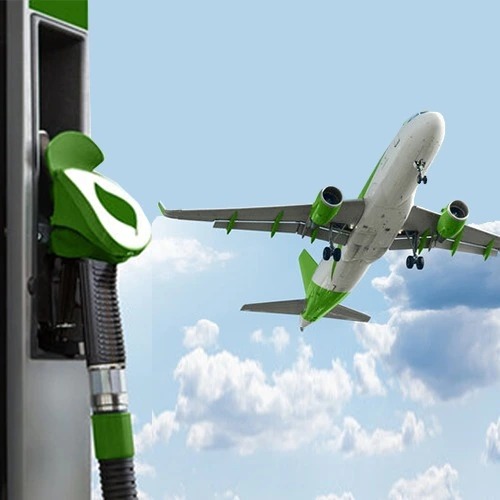Dublin: A recent feasibility study conducted by SAF producer SkyNRG in collaboration with the SFS Ireland research group has unveiled Ireland’s potential to produce sustainable aviation fuel (SAF).
Ireland’s offshore wind power plans could see it produce sustainable aviation fuel (SAF) from around 2030 but “significant progress” is needed to develop SAF at scale, a study showed on Wednesday.
The aviation industry faces a considerable challenge in securing an adequate supply of SAF as it strives to achieve net-zero emissions. Traditional jet fuel is a major contributor to pollution, while sustainable alternatives, although promising, remain expensive and in limited supply.
The study indicates that Ireland’s primary opportunity lies in synthetic e-fuels or eSAFs, which are created using captured carbon and green hydrogen. Notably, eSAFs are currently produced in even smaller quantities than other alternative fuels. While neither of these essential feedstocks is currently available in Ireland, the recent allocation of offshore wind project contracts, boasting sufficient capacity to power every Irish home, holds the potential, “in principle,” to produce the necessary green hydrogen for approximately 10 SAF production plants, meeting Ireland’s share of EU-mandated SAF volumes.
Oskar Meijerink, Head of Future Fuels at SkyNRG, explained, “With the potential for offshore wind in Ireland and the ability to have that abundantly available, there is an opportunity to use that pathway to produce SAF. But to get there, we still need quite a bit of development in the country in terms of policy incentives and clear road maps.”
However, Meijerink noted that captured carbon might not be as readily available, implying that Ireland would need to import the feedstock if it aimed to become a SAF exporter.
The report received support from industry giants Boeing and Irish aircraft leasing firms Avolon and ORIX Aviation. It suggests that government incentives, including tax credits, capital allowances, and pricing guarantees, are imperative to develop a viable eSAF business case. Moreover, investments will be required in hydrogen transport and storage infrastructure, and grid congestion issues must be addressed.
Irish Enterprise Minister Simon Coveney expressed the government’s eagerness to collaborate further with the industry to explore Ireland’s SAF potential, indicating that a successful partnership is essential to make sustainable aviation fuel a reality in the country.












